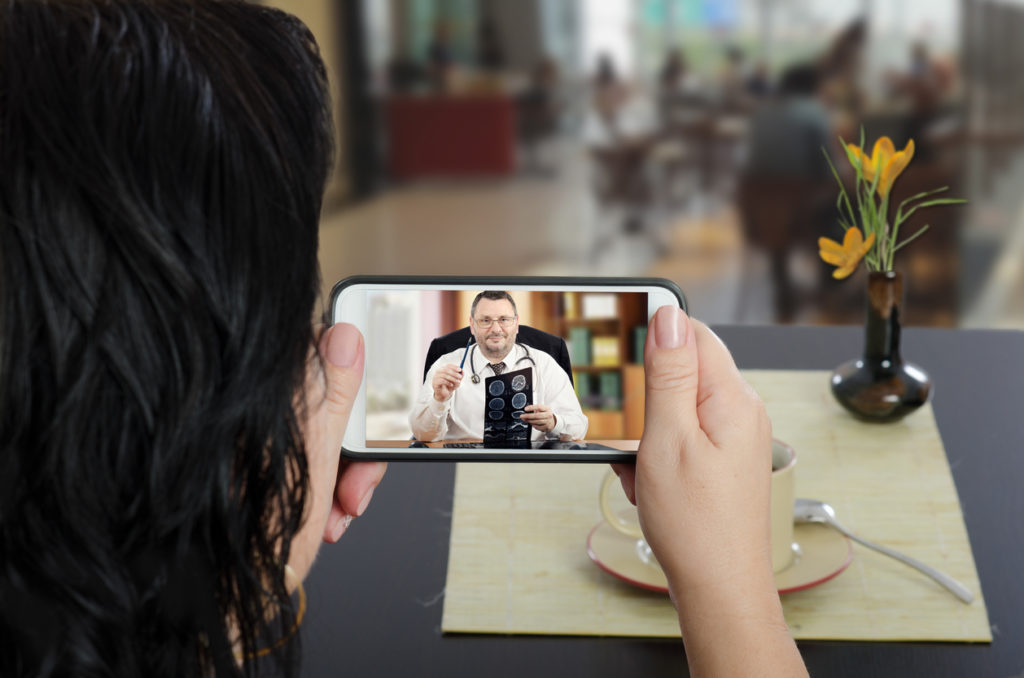Patient engagement has been affected by the strike of the Coronavirus disease-2019 or COVID-19 pandemic. Since the fear of contracting the virus is still high, it can be practical to employ digital engagement practices and healthcare advertising to maintain better patient-doctor relationships and attain healthcare business goals.
But how can one maximize digital engagement? In this article, you’ll learn tips for digital engagement with patients that you can apply for your healthcare business. Read on to find out more about them.
Embrace Telemedicine
Healthcare professionals and patients can use digital technology to discuss health-related concerns online. Also, doctors can even conduct a patient’s assessment, diagnosis, and treatment through telemedicine.
Telehealth or telemedicine is believed to be a global trend this year, soaring peak usage during the pandemic crisis. This innovative online consultation is a form of digital engagement, bringing forth plenty of benefits in the healthcare sector, which includes the following:
Reduced Hospital Occupancy Rate
With telehealth, patients can discuss treatment options with their physician online using their mobile devices and telemedicine app. Because patients can talk to their doctors virtually, they don’t need to visit their clinics or hospitals unless really required. Non-emergency cases can be treated at home with their primary caregiver. Hence, reducing the number of patients being admitted to clinics and hospitals.

Convenient Appointment Setting
Patients don’t need to consider the usual clinic business hours and wait patiently for their turn to get in touch with a doctor. They can set a checkup appointment online using different telemedicine apps without talking to a receptionist.
Remote Checkups Boost Safety Protocol Compliance
The active case rates of COVID-19 are still significant, and taking advantage of telemedicine is one way to prevent contracting the deadly virus. Doing virtual consultations allow patients to stay home instead of going to healthcare facilities which can increase their risk of both acquiring and transmitting disease.
Social Media Apps
Social media platforms make up a friendly communication tool and engagement platform for healthcare professionals and patients. Medical providers and other workers can engage with patients through social media by:
Creating Health Support Groups
Healthcare organizations create health support groups, such as social media groups for cancer patients, alcoholics, or promoting mental health. These health online support groups play an important role in building an avenue for patients to discuss their problems and share their experiences, helping others gain insightful ideas on how to surpass their current situation.
Publishing Expert Health Advice
Healthcare professionals can share their expert advice with patients through social media. Patients can raise questions and medical workers can answer them through messaging apps or through the commenting section.
Increasing Public Health Awareness
Doctors can be proactive in posting health-related news and tips, helping people live a healthier life. Even health government agencies use social media to announce new developments in COVID-19 vaccination and other health-related news and public concerns.
Healthcare Digital Advertising
Digital marketing strategies, such as email marketing and content marketing, also apply to promoting better patient engagement in the healthcare industry. Check the following ways healthcare digital marketing can help improve patient engagement:
Targeted Marketing
Healthcare businesses, such as pharmacies, healthcare facilities, and even medical equipment manufacturers make use of digital marketing to reach their target customers.

One good example of targeted marketing is email marketing, in which website users who showed interest and provided their email addresses are the ones sent with follow-up engagement emails, such as healthcare advice, new promotions, offers, and free checkups.
Immersive Engagement
With live streaming, video marketing, and virtual reality, immersive patient engagement is possible. For instance, counselors can engage with patients using any of the aforementioned platforms, helping two or more patients in a group therapy session.
Health Thought Leader
Medical professionals can position themselves as thought leaders in the realm of medicine by sharing their knowledge through blogging and guest posting while promoting their professional services or clinics and hospitals at the same time.
Taking Advantage Of IoT Solutions
Internet of things or IoT, along with the complex nature of big data, artificial intelligence, and cloud computing make up modern advanced digital technology. The healthcare sector can take advantage of IoT solutions or using interrelated devices to gather patient data without requiring human interaction, streamlining healthcare facility operations.
With IoT solutions set in place, nurses, doctors, and other allied healthcare professionals have less time manually entering data and more time spent engaging with their patients. For instance, the use of computerized mobile carts helps save so much time and effort that healthcare workers can use to focus on patient engagement.
Conclusion
Digital engagement transforms the healthcare sector in so many ways, enabling medical professionals to deal with patients remotely. With innovative patient engagement platforms, the risk of disease transmission is reduced, promoting more proactive and straightforward medical treatments without wasting so much time like traditional medical consultation.
